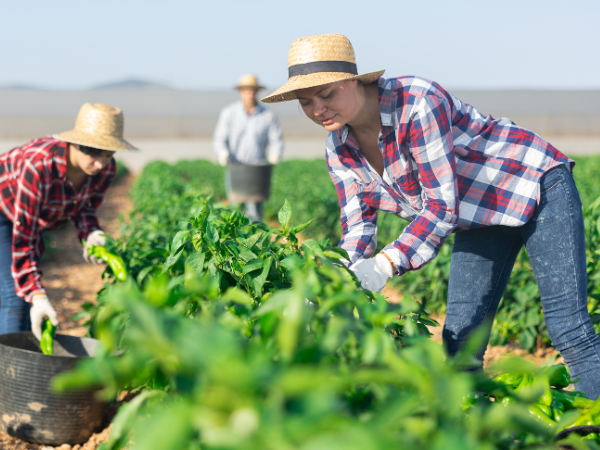
How farmland investment can be the start of a sustainable agriculture endeavour
At its heart, sustainable agriculture is about ensuring food security in the present without compromising the ability of future generations to meet their needs.
There are a plethora of factors to consider when investing in agricultural land with the intention of farming sustainably. From soil quality and microclimate to ecosystem health and topography, each available tract of land must be considered for its merits.
Why invest in sustainable agriculture?
According to National Geographic, we will need to feed two billion more people by 2050. Finding ways to do that without overwhelming the planet is critical. Other interesting statistics contained in the report include the fact that demand for meat has tripled in the developing world over the past 40 years. Even more startlingly, egg consumption has increased sevenfold. At the same time, agriculture is among the highest contributors to global warming. Traditional farming methods are linked to extremely high water consumption and a loss of biodiversity.
Farmland offers long-term opportunities for creating wealth - whether or not you want to be the one doing the farming. You can create passive income through an agricultural real estate investment in various ways, such as renting to tenants who wish to grow crops or raise animals, or renting to hunters or off-road enthusiasts who want to use your property for recreational purposes.
Over and above contributing to sustainability for future generations, sustainable farming has the potential for job creation and the socio-economic development of rural areas. From an environmental perspective, it allows for greater climate-change adaptation.
The importance of sustainable agriculture cannot be underestimated. According to a Nedbank report on making agribusinesses greener, agriculture is responsible for almost 20% of the greenhouse gas emissions driving climate change - and this excludes figures related to the processing and distribution of agricultural products.
Things to look for when making a sustainable farmland investment
As a starting point, you want to invest in a farm that has all the necessary facilities and structures in place. A great example can be found in this Kathu farm, which boasts two houses, two barns, four camps, two dams, five boreholes and a solar power system. Other infrastructure to be mindful of include fences, irrigation systems and wind turbines.
The topography and slope of the land could help or hinder your sustainable farming endeavours. Farmland with gentle slopes and good drainage tend to experience less soil erosion and nutrient runoff, which preserves soil quality and minimises the need for erosion control measures.
Learn everything you can about how the land has been used in the past. Historical use of pesticides and herbicides could lead to challenges in sustainable farming. Soil health and biodiversity could also have been detrimentally affected.
Look for land that supports or can be easily converted to sustainable farming practices such as organic farming, permaculture, agroforestry and rotational grazing.

What are the most sustainable methods of farming?
Organic farming is widely renowned for its reliance on crop rotation, composting and biological pest control to maintain soil fertility and manage pests. This is in stark contrast to the use of synthetic fertilisers, pesticides, herbicides and genetically modified organisms. Permaculture is a design respected for its mimicry of natural ecosystems to create sustainable and self-sufficient farming systems. Regenerative agriculture goes beyond sustainable practices and actively works to restore soil health and improve the functioning of ecosystems. It does so using strategies like cover cropping, rotational grazing and holistic land management.
When you’re looking to make a farmland investment in South Africa, you can trust the Seeff team’s expertise to guide you to the land that’s right for you. Get in touch today and let’s discuss your sustainable agriculture venture.







